Alpha Protocol
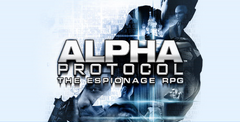
| a game by | Obsidian Entertainment, Inc. |
| Platforms: | XBox 360, PC (2010), Playstation 3 (2010) |
| User Rating: | 9.3/10 - 3 votes |
| Rate this game: | |
| See also: | Open World Games, RPGs, Games Like Fallout 4 |
From Bond's First glowering stare across a baccarat table all the way to Tom Cruise whining like a petulant child and sticking explosive chewing gum on a fish tank - the international spy thriller has been a cornerstone of popular culture for decades. So why has it never really translated to games?
Only one Bond game was ever any good (which wasn't even on PC) and the rest were a sequence of gaudy car crashes and poorly clipped death animations. Other stabs at the genre were late-'90s shooters with internationally themed levels ("Wow! A Chinese sewer!" "An underground base in Mexico? Awesome!"). In fact, the closest we've come to matching a Bourne or a Bond is Deus Ex, with only internationally hubbed adventures like Indiana Jones and the Fate of Atlantis treading on its coat-tails.
Well, no more. Not if Obsidian have anything to do with it anyway. You see, Obsidian are developers of outstanding pedigree (formed from the ashes of Black Isle, the creators of RPG touchstones Fallout and Planescape: Torment) yet of late they've been somewhat saddled with being known as the developer who delivered the borked ending to KOTOR 2 and, with Neverwinter Nights 2, created a worthy game that went largely unnoticed. Now though, with their own world to play with and a remarkably fresh take on the genre, they're on the offensive.
Betrayed by his superiors. Hunted b his own country. The only man alive who has hint of a conspiracy that is soon to result in massive loss of life. A spy who's a bit rubbish at first, but does have some as-yet unfilled skill slot that could lean on the violent side. Michae Thorton (that's 'Thorton', not 'Thornton' like the high street chocolatiers or our production editor's home village) starts off in full-blown Mission: Impossible territory - gone rogue with only a list of names and potential safe houses, and several thousand air miles to help him. From there, Obsidian are taking him and us on a journey they hope will meld the aura of the three JBs - Jason Bourne, Jack Bauer and James Bond.
Cruise Control
"Yeah, Alpha Protocol has much of the edginess of the new James Bond movie," smiles Ryan Rucinski, one of Obsidian's senior producers, as we mull over his new roleplayer. "Although the development of AP actually started before the release of Casino Royale. So when the movie came out and we saw the results, we knew we had made the right decision. There have been a lot of movies that have influenced us during the conceptual creation -Mission: Impossible, the Bourne films, Ronin... However, one of the main contributors in look and tone was Syriana. If James Bond is where the action comes from, Syriana big influence on the theme. what Obsidian want to stress more ling is that Alpha Protocol is a role-playing game.
You'll have multiple missions open in different hubs around the world (locations currently being bandied about include Taipei, Rome, Moscow and Saudi Arabia) and you'll be able to flit between them at will - each one containing one overarching operation and a cavalcade of minor missions leading up to it - be they stealing sensitive data on a hard drive, tailing suspects or extracting information from grumpy NPCs through bribery, diplomacy or murder most foul. "The mission structure is designed to present Thorton with an Operation, and then there are several avenues he can explore to tackle it using the skill set or preference of the player," explains Rucinski. "We don't want to force you through a linear series of levels, we want to treat every operation in the game like a mini-hub, where you get a number of missions you can tackle in any order, just to give the player more freedom."
Thort That Counts
As for developing the skills of young Mr Thorton, the system being developed is a classless one - with 10 skills in which to level up, each containing 10 slots to spend your valuable Advancement Points (or experience points) in. You won't be able to max out your character, instead you'll be moulding the game into your chosen form of super spydom - whether its gruff no-nonsense headshots, sneakily hiding in the dark, bloody and silent close combat or gadget-heavy explodifying.
A higher rank opens up different options and perceptions, while almost superhuman secret-agent abilities are on the menu too -working on a 'use and cool-down' basis during the action. The example of this that Obsidian conjure up when prompted is, ' amazingly enough, heightened reaction ' times that let you assess situations in I slo-mo before letting rip with a six-hit chainshot to decimate a room full of gun-toting terrorists.
It's a mundane example, true, but Alpha I Protocols over-the-shoulder chase-cam action does seem to be a step up from your . average RPG. Combat will have you running and gunning, taking cover or sneaking about the place - but that's not to say you won't be able to build your character towards the hand-to-hand fisticuffs recently in vogue.
"If Thorton can get close enough to enemies or if enemies get the jump on him, we have a variety of martial arts moves you can employ. There's nothing as satisfying as getting close enough to a guy to have him turn around just in time to plant a jumping knee to his face," explains Rucinski, displaying a hitherto unexplored knowledge of Sunday League football. "For the very stealthy player, the martial arts can provide the most silent way to dispose of enemies." Mixing your own skill with increasing RPG capabilities (weapons, hacking, electronics, traps, stealth or whatever) will gradually move further and further into comic-book heroism - but that isn't to say the game ignores realism. "Realism is important to Alpha Protocol. Ne've tried to create situations and themes from actual news'items and hypothetical scenarios," says Rucinski. "Our technologies and equipment are also realistic. We made it very clear early in development that we wouldn't have a near-indestructible bipedal robot running around shooting things. If we used a robot, it would look like what the military or SWAT would use, with wheels and treads instead of legs." Near-future is the byword, so as to allow for more gadgets and gizmos than ever before. But this is entirely a Casino Royale rather than a Die Another Day "OMG invisible car and surfing on melting CG iceberg" exercise in depressing Fleming-grave-turning.
Good Chats
In a lot of role-playing games (mentioning no names, cough, Oblivion), the people you meet retread the same conversations again and again - mostly accompanied by a frown or a smile depending on what armour you chose to put on that day. Not so with AP - where first impressions count. Meet someone and act all gruff with them and they won't be all that impressed for a fair while - unless they re a sexy woman who's been designed to want to play chasey-sexy and might like that sort of thing (see Chinwag Cleverness).
"Essentially, the player chooses a 'stance' for Thorton (suave, professional, or aggressive - although the actual breakdowns branch a great deal from this) and then Thorton responds appropriately -and amusingly," explains Rucinski, having selected his own internal suave stance. "The dialogue system is also set up so that you can't repeatedly have the same conversation with an NPC to try to find the 'best' answer or all the information available. This means that if you are a jerk to a person you will get a reaction the next time you talk to them. It reinforces how important that first impression is."
Conversations will whip along at a realistic pace, with you selecting changes in how Thorton responds to maintain the flow of real-life chatter.
Gaming's former forays into the lives of secret agents, Deus Ex aside, have only evjr focused on the guns-blazing elements, and perhaps a pretty lady or two in cutscen Alpha Protocol wants you putting in the legwork, doing the reconnaissance, chatting up the receptionists and looking moody in fancy hotels - it knows the excitement isn't all in the violence, but in the setup, the situation and the supporting cast. In premise and pedigree, it's a sure-fire licence to kill. Let's hope the execution is as flawless as it needs to be.
Download Alpha Protocol

System requirements:
- PC compatible
- Operating systems: Windows 10/Windows 8/Windows 7/2000/Vista/WinXP

System requirements:
- PC compatible
- Operating systems: Windows 10/Windows 8/Windows 7/2000/Vista/WinXP

System requirements:
- PC compatible
- Operating systems: Windows 10/Windows 8/Windows 7/2000/Vista/WinXP
Game Reviews
At Its Peak, Black Isle Studios was one of the leading RPG developers on the planet. From its loins sprang a succession of hit games including classics such as Fallout and Planescape: Torment, as well as the solid Baldur's Gate and Icewind Dale series. In 2003, with a string of hits to its name and Fallout 3 being developed, the future of the RPG genre rested in the company's palm.
So when Interplay laid off the entire Black Isle team in December 2003, the entire gaming industry was shocked. But you can't keep a good developer down, and having left Black Isle Studios earlier in the year, its founder Feargus Urquhart wasted little time in setting up Obsidian Entertainment.
End Of An Era
"Black Isle was doing pretty well and was making a profit for its division at Interplay," recalls Chris Avellone, Obsidian's creative director and co-owner. "There were other divisions that weren't performing as well and as a result, we kept being asked to deliver games faster and faster with fewer resources. The timelines were just crazy." After so many years of prosperity, the company suddenly found itself reduced to a cash cow, forced to churn out products at increasingly rapid rates, a factor which Avellone believes severely stymied the team's creative juices.
"We were asked to generate a large number of products quickly, but that's not the same as generating satisfying products," he explains. "We were using the Infinity engine again and again, making lots of Icewind Dale products. I'm proud of those games and I enjoyed working on them, but we weren't doing anything groundbreaking with them, we weren't pushing the RPG genre. But we felt that Fallout 3 and Baldur's Gate 3 and would be our chance to take the RPG genre forward." But it wasn't to be. Interplay gave up its rights to Baldur's Gate and Icewind Dale licences, a setback that was followed by an even more crushing blow a few months later.
"The management refused to support Fallout 3 (then known as Van Buren) because it believed that a Fallout RPG wouldn't sell," says Avellone. "We'd been working on the game for 18 months and had a demo up and running, then they cancelled the project. So Feargus resigned. Once he left it became clear what a predicament the company was in. It was also like the spine liad been ripped out of the team. Then Feargus set up Obsidian and I and a bunch of other people from Black Isle joined him there."
New Dawn
And so began a new era for many members of the Black Isle team as they embarked on a guest to return to the principals that had served them well, before the dark days of ridiculously short development cycles stifled their dreams of advancing the genre. Or so went the plan.
After spending several years working on Star Wars: Knights of the Old Republic II - The Sith Lords the game was rushed to completion at the publisher's behest and thereby missed out on greatness with a fudged ending. Neverwinter Nights 2, meanwhile, was a good outing, yet it was buggy and failed to really hit its stride until its expansion, Mask of the Betrayer, arrived.
The hope then is, that with their own game and a more understanding publisher. Obsidian are finally going to be able to get some of that old Black Isle magic out of the bag. The game being Alpha Protocol, an RPG that casts you as CIA agent Mike Thorton who's battling to clear his name, and save the world, after a failed mission sees him disowned by the Agency.
"A licence is a blessing and a curse,'' explains Christopher Parker, executive producer and co-owner of Obsidian. "When we worked on D&D games, we were just thinking about how to replicate the D&D world and rules.
That's both incredibly confining and incredibly simple to do. You don't have to think about it too much. However, when you're making something new, you're happy that you don't have to worry about implementing certain existing rules like Charm spells in D&D. It's also great that you don't have any boundaries constraining you."
For Alpha Protocol. Obsidian began with a blank canvas in order to create a new RPG rule set: an open, classless system that will allow you to keep your character creation dynamic and organic throughout the course of the game.
Old And New
One of the fundamental differences between the Black Isle and Obsidian teams is the injection of new talent brought in to complement existing artists, designers, programmers and writers. This includes several members of the Troika Games team responsible for the flawed RPG masterpiece Vampire: The Masquerade - Bloodlines.
"Once we'd set up the core team we found that a lot of other people from Black Isle wanted to join us," recalls Avellone, "Then we employed some great people from other companies such as Troika, which was a really talented company that sadly fell foul of the age-old start-up developer problem of getting too focused on one game and not signing a contract to begin the development of another one.
"When we drew in people from other developers, they brought the best practices from their companies and as a result, made Obsidian a better company than Black Isle ever was. We were exposed to lots of new and different ways of creating RPGs."
Perhaps it's partially due to the influence of these new staff members and partially down to Obsidian's desire to push itself into new RPG realms that Alpha Protocol is moving away from the stat-based combat of its predecessors, replacing it with real-time gunfights and slugfests where success relies as much on player skill as on character stats.
Borrowing heavily from the tactical mechanics of Gears of War and Rainbow Six: Vegas (where using cover is an essential component in the action), Alpha Protocols combat is shaping up to be far more involved than previous Obsidian RPGs.
By adopting this real-time approach Obsidian has cracked open a whole new set of possibilities, such as the ability to zip line into the heart of a Middle-Eastern enemy's base then open fire on a small army of terrorists while darting from one point of cover to the next tossing grenades into their bunkers, or chase foes, Assassin's Creed-style, over the rooftops of Rome - before strapping them to a seatless chair and pummelling their undercarriage with knotted rope until they spill the information you require to complete the next stage of your quest. Well, maybe not that last part, but you get the idea.
Act And React
Alpha Protocols set pieces are certainly shaping up nicely, and the ability to control your character in real time in every situation promises to give you far more control over the way you approach each and every mission. The key here is Reactivity, a system which Obsidian believes will allow you to approach every situation in a myriad of ways, with your choices dynamically forging Mike Thorton into the spy of your choice.
"In most RPGs you complete a quest for a NPC, pick up your reward and then you repeat the process over and over again," explains Parker. "We want to take that a step further, which is where Reactivity comes in. Reactivity is caused by how you approach each mission, who yon talk to, how yon talk to them and what intelligence yon gather."
One example of how this system will work will be when you're faced with an enemy yon can either kill, arrest, or accept a bribe from. "If yon kill him you'll be able to take his stuff, but if you accept his bribe, you'll lie able to use him throughout the story to buy new items that you wouldn't have access to otherwise," reveals Parker. "If you arrest him, you'll get all of the brownie points for doing what you were supposed to do, as well as helping yourself in future missions by using information that he provides. It's completely up to you.
"But while each outcome will lie different, we're being very careful never to penalise the player for the choices you make. We want to make sure that your choices simply change the way the game reacts to you and the paths it leads you down."
Reactivity will play a major role in the way you approach each mission. Arm yourself with a silenced pistol and creep your way around an office block in order to gain access to its computer files and you'll find Mike turning into a master of infiltration, a spy who can slink in shadows unseen. However, opt to arm yourself with an assault rifle and bulldoze your way through each level, and Mike grows into a hardened killer with a penchant for mass destruction and the subtlety of a bulldozer in a library.
Talk To Me
Reactivity will also play a major role in how you speak to NPCs, with the game using a dialogue system conceived during the Black Isle days.
"A lot of the approaches that we have for Reactivity and building dialogue tools are modelled on what we did at Black Isle," reveals Avellone. "We wanted to build a real sense of reactivity for the conversations in Alpha Protocol." What this ostensibly boils down to is a time-limit based response system, which gives you just seconds in which to choose the manner of your reply.
"We're trying to create tension by only giving you a limited amount of time to select a dialogue option and only one chance to do so," explains Parker. "Our dialogue stance system allows you to choose the style of your response, but we're also making sure that there are no wrong answers, only very different types of consequences. If you choose to play the entire game as a suave spy, you'll get different rewards than if you are aggressive.
"Most people will try to tune how they speak to different characters, and there'll be rewards for this style of play too." Opt to be professional and you'll come across as aloof and focused only on the mission in hand. However, choose to respond aggressively and you'll be sliamelessly flirting with anything in a skirt and making condescending comments to male NPCs in no time. You'll also be able to opt for a suave approach to dialogue responses (a bit like pre-Daniel Craig James Bond) while certain situations will throw up a fourth option, such as pulling out your gun and doing your best Dirty Harry impression.
On And Upwards
With a host of new gaming mechanics, a new rule set and a skill system broken down into 10 key categories ranging from weapon proficiency to stealth and (lacking skills, Alpha Protocol is starting to look as though it could be the game that the Obsidian team has been dreaming of making for years.
"When we set up Obsidian we were slightly differently focused compared to when we were at Black Isle," says Avellone. "We knew what RPGs we wanted to make and we wanted to get away from all the constraints, like having to use an existing engine, and only having a few months to develop the game. We've been given the chance to do that with Alpha Protocol."
Having been thwarted in its attempts to create a groundbreaking RPG that would take the genre to new heights by the constraints imposed on it during the last few years of Black Isle, and having been forced to watch as the likes of BioWare and Bethesda establish themselves as leaders in the RPG market, the Obsidian team has a chance to prove they can compete with the big boys.
"With Alpha Protocol, we want to build an RPG which is a lot like the Baldur's Gate 3 and Fallout 3 that we were envisioning while we were at Black Isle," says Avellone. "We want to try and push the genre forward and make good RPGs.
"When we were at Black Isle, it was so demoralising having to do the same thing over and over again. If we were lucky we were able to develop a new system for a game, but it wasn't really what we wanted to do. That's why we formed Obsidian - to create the RPGs we wanted to make at the level we wanted to make them."
Looking promising with a year of development time still remaining, Alpha Protocol may just be that RPG. After all the trials and tribulations that this team has had to endure, here's hoping it is...
Bringing then into the now
Obsidian brings fantasy RPG elements into a modern setting
For all of its contemporary spy themes, high-tech gadgets, weapons and reactive gameplay mechanics, Alpha Protocol is still a good old fashioned RPG at heart Despite these modern-day themes and technologies, Obsidian are determined to include all of the staple elements that made its past RPGs such as a success, such as the ability to customise Mike's physical appearance before the game begins and allocate Advancement Points to 10 different skill sets, which you'll develop throughout the course of the game. Loot is also set to receive a modern-day makeover, with electronic safes replacing the padlocked chests of yore. Collect enough money and you'll be able to buy a wide variety of weapons and armour types from arms dealers - aka the blacksmiths of the 21st century.
I Wish Making games wasn't a business. I wish we'd just make things for the hell of it, and anyone who'd made a game could walk into a bakery and they'd say, "Take a sandwich! And thanks more making life in this cashless world more fun for us bakers!" The business aspect is what that leads to humans like Bobby Kotick flourishing. It leads to games like Singularity slipping under everyone's radar thanks to some pricks in marketing pulling the strings. And it leads to Alpha Protocol getting cancelled after an imperfect start.
No-one is going to seriously pretend that Alpha Protocol was unfettered brilliance. It had a almost crippling boner for Mass Effect, for starters. But what it lacked in satisfying combat, it made up for in semi-realised potential.
For starters, conversation was more realistic. Your chat choices didn't migrate into some cosmic pool of karma, and determine whether you're a stellar hero or a space dick. You're a spy, an actor, not a famous paragon of humanity, so your responses only affected your relationship with the person you were talking to. Of course, the drawback of this method was a +1 removed a -1, instead of you having two ever-growing plus and minus banks. But it made you think about what you were saying far more than "press up for nice and down for naughty".
And during that conference call in the hotel if you're like me, you'll have tried to flirt, because it's worked so far. But both women are listening, and you piss both of them off. That's unusually brilliant. Of course, you can't talk for too long about the good points of Alpha Protocol without acknowledging the bad. So yes the NPCs' AI was a big brown dog's egg with weird strippers hiding from the gunfire by standing on a roulette table in the middle of the room, and bad guys ignoring you as you strolled past. But remember different ways you could tackle the opening levels, and remember how this could have been a great game.
Alpha Protocol could've had a great sequel. Curse this numbers-driven world, and the cash that oils its perverted engine.
One Of The more annoying extensions of the effect games have on our brains -specifically the one that has our brain going "phwee, I'm in a war" - is the one that causes our morality lobe to misfire and think that, when we hover over the "tell the friendly robot lie's rubbish and then kick him in the face" option, we're about to inflict misery on a real thing. It's worth pointing out that real robots wouldn't experience misery or pain, never mind ones in BioWare games - so even when two steps removed from a negative act we (well, I) still can't stand punching my robotic friends.
So you opt for the "pat him on the head and tell lie's lovely" dialogue choice instead, and you spend the rest of the game doggedly trying to please everybody by worming your way through the most positive sounding sentences, like a patient trying to escape a mental hospital using personality quizes from Hello! magazine.
Alpha Protocol fixes this surgical approach to socialising by giving you four stances to assume once words have been spoken to you. And waiting around to have a think won't work either, NPCs will just shout at you for looking disinterested and aloof. It's Mass Effect's "vague response" system dulled even further, but where that game could muddy your intent, Alpha Protocol gets it right more often than not. More importantly, being a tit in this game feels guilt-free, and not because the characters aren't worth caring about, but simply because the writing on the evil side of the fence is both clever and very funny. Alpha Protocol is a sarcasm simulator, and not having your character's response or actions laid out before you makes every Hk line a surprise, iCD We meet our informant Grigori in a bar. A little worse for wear, he appears to have been here for some time before our arrival.
Before a word is spoken the HUD demands to know your stance - flipping to "aggressive", Grigori's face is slammed into the bar as you scream your demands into his bloodied face. You smash his vodka glass and wave the shards about threateningly, swearing, mocking his accent and acting silly. The upside is, lie's rightfully terrified and hands over the location of the guy you're attempting to track down.
The downside is that you've missed out on a potential side-quest Grigori would've divulged had you been a bit more pleasant, and that further down the line - hours more into the game -your target will have been informed of your arrival by Grigori and so beefed up his security.
Joys Of Charm
Time is rolled back, and we're shown what would've happened in an alternative universe where the player isn't such a gratuitous bell end.
"I'm looking for a man," comes the opening from our character. A pause. "But not in that way..." he adds. The exchange is then courteous and lighthearted, the location of the very same target is handed over, as well as the details of another optional mission. We also get access to Grigori's private arms dealer at a better price than we would've had otherwise. As the conversation ends.
Grigori effectively thanks you find solace by sprinting up to a door and jabbing your lockpick in it. Besides trite mini-games, there's some worry that the half of Alpha Protocol in which you're not spouting rejected pages from a Bond script may be dulled by some apparently tired level design (the generic Middle Eastern town we played through was a maze of brown alleys, wooden doors and empty rooms), and the visuals are oddly low-fi.
Compromises are being made, and in leaning so heavily on a solid skill-based system Alpha Protocol naturally gives up some of its shooter qualities. That said, it's hard to find any RPG/shooter in which the combat is endearing from the game's start. Without creating and honing a character ourselves, to the point where we know exactly how and when to use given skills, it's going to be difficult to draw conclusions.
The structure of the game is unlike those of Mass Effect and Knights of the Old Republic. There are no hubs to speak of, no floating quest markers above NPC heads, and dialogue occurs only once, so you can't talk to somebody for a second time to try out another line of questions. You'll move from location to location, returning to safe houses from where you'll launch missions before leaving it behind and progressing to another tier of missions. The order in which you accept them is up to you, but Alpha Protocol could feel more linear than most RPGs.
Even if that's the case, there's a promise from Obsidian that the game will be flavoured more by your choices than any other game in the genre. And we guarantee that you'll be able to punt a quest-essential orphan into a bonfire without feeling any remorse.
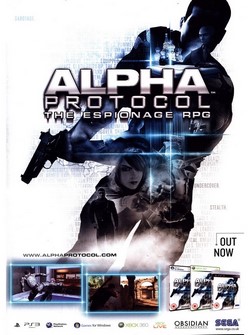
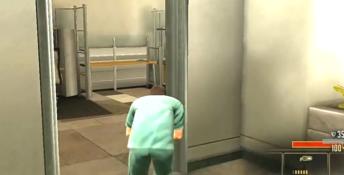

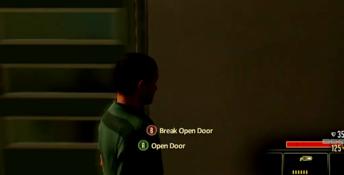
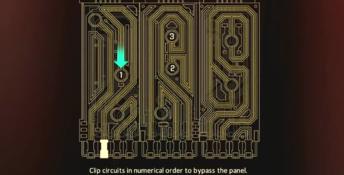
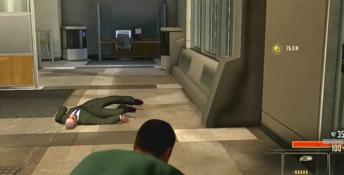
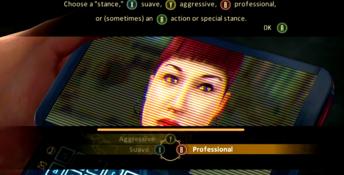

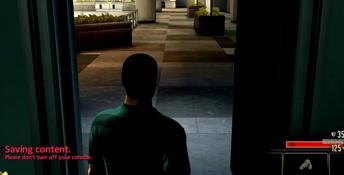
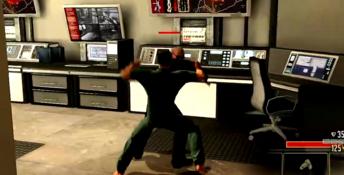
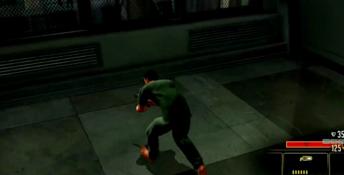
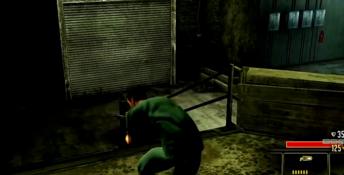
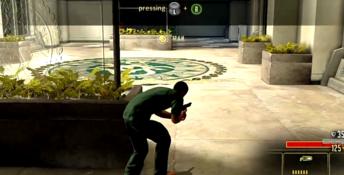


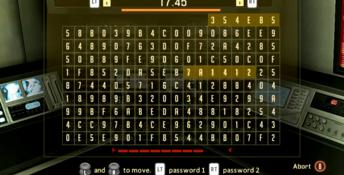


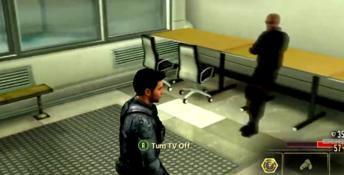
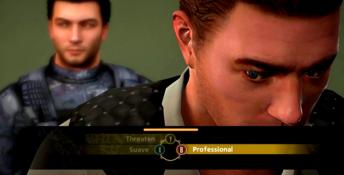




























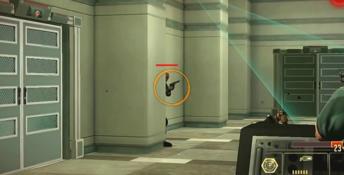
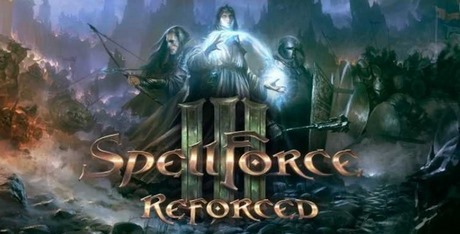 SpellForce III Reforced
SpellForce III Reforced
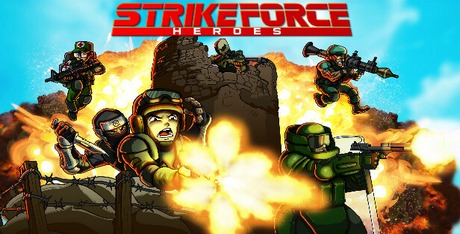 Strike Force Heroes
Strike Force Heroes
 3D Dot Game Heroes
3D Dot Game Heroes
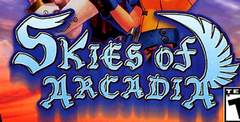 Skies Of Arcadia
Skies Of Arcadia
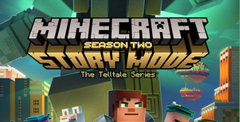 Minecraft: Story Mode Season Two
Minecraft: Story Mode Season Two
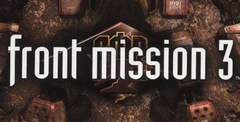 Front Mission 3
Front Mission 3
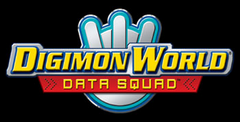 Digimon World Data Squad
Digimon World Data Squad
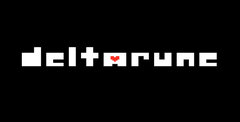 Deltarune
Deltarune
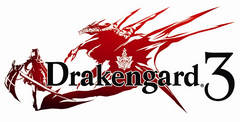 Drakengard 3
Drakengard 3
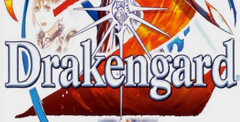 Drakengard
Drakengard
 Assassin's Creed The Ezio Collection
Assassin's Creed The Ezio Collection
 Tales of Xillia 2
Tales of Xillia 2
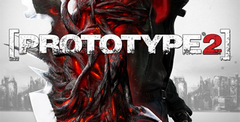 Prototype 2
Prototype 2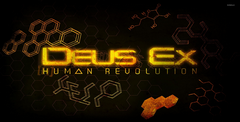 Deus Ex: Human Revolution
Deus Ex: Human Revolution
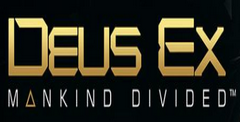 Deus Ex: Mankind Divided
Deus Ex: Mankind Divided
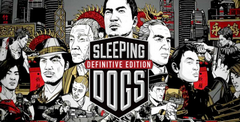 Sleeping Dogs
Sleeping Dogs
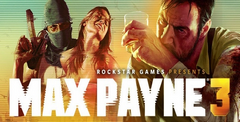 Max Payne 3
Max Payne 3
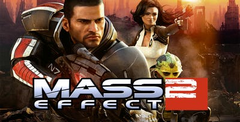 Mass Effect 2
Mass Effect 2
 Astroneer
Astroneer
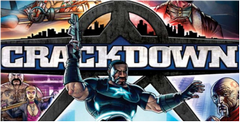 Crackdown
Crackdown
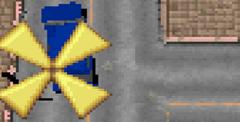 Payback
Payback
 Grand Theft Auto: Episodes from Liberty City
Grand Theft Auto: Episodes from Liberty City Grand Theft Auto: London, 1961
Grand Theft Auto: London, 1961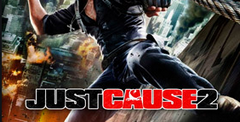 Just Cause 2
Just Cause 2
 Taxi 3: Extreme Rush
Taxi 3: Extreme Rush
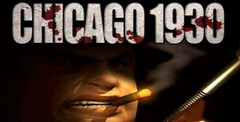 Chicago 1930
Chicago 1930
 25 To Life
25 To Life